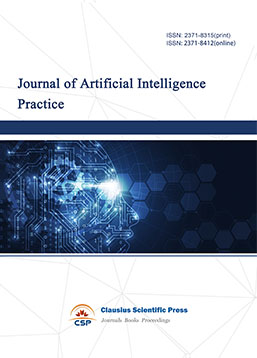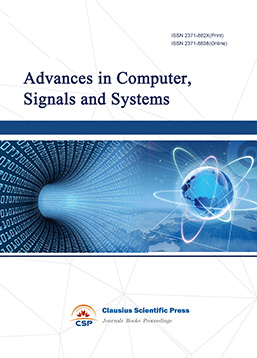A Multi-Timescale Low Carbon Scheduling Optimization Method for Integrated Energy System Considering Source-load
DOI: 10.23977/jeeem.2023.060405 | Downloads: 25 | Views: 1531
Author(s)
Lu Wang 1, Wanting Wei 2
Affiliation(s)
1 College of Economics and Management, North China Electric Power University, Beijing, China
2 Beijing Xinyuan Intelligent Internet Technology Co., Ltd., Changping, Beijing, China
Corresponding Author
Lu WangABSTRACT
In order to reduce the instability of integrated energy system caused by wind power, load prediction error, and low-carbon and low-cost operation, a multi-time scale low-carbon scheduling optimization method for integrated energy system is proposed. The fuzzy variables and fitting loads under different time scales are obtained by analyzing the change of prediction error of wind energy, load and user response law under the time-sharing price. To achieve deviation control at different time scales, minimize the cost of daily power purchases, gas purchases, wind discards and carbon emissions. To satisfy load balance, active backup, power purchase constraint and energy storage capacity constraint to construct an optimized scheduling model for integrated energy system. Implementation of low carbon optimization scheduling requirements for integrated energy systems. The experimental results show that this method can realize the optimal dispatch of electric, gas and heat load of integrated energy system. The higher the accuracy of wind power and load prediction, the lower the optimal dispatch cost of integrated energy system.
KEYWORDS
Prediction Error, Time-Sharing Tariff, User Response, Low Carbon Scheduling, Deviation Control, Cost of PunishmentCITE THIS PAPER
Lu Wang, Wanting Wei, A Multi-Timescale Low Carbon Scheduling Optimization Method for Integrated Energy System Considering Source-load. Journal of Electrotechnology, Electrical Engineering and Management (2023) Vol. 6: 28-36. DOI: http://dx.doi.org/10.23977/jeeem.2023.060405.
REFERENCES
[1] He Ming, Chen Yuandong, Kao Shou, Kang Liwei. Distributed Integrated Energy System Transient Data Monitoring in a Cloud Computing Environment. Microcomputer Applications, 2021, 37 (08): 112-115.
[2] Guo Zhong, Li Gengyin, Zhou Ming, etc. Two-stage robust optimization scheduling of regional integrated energy systems considering network constraints and source-charge uncertainty. Grid technology, 2019, 43 (09): 3090-3100.
[3] He Liang, Cheng Xiu, Xu Jianyu, etc. Integrated Energy System Energy Coordinated Optimization Scheduling Based on Multi-time Scale and Multi-source Energy Storage. Power System and Its Automated Chemistry: 2019, 4(5): 77-84 + 97.
[4] Qi Jianghao, Li Fengting, Zhang Gaoyang. Demand Response Segmentation Participation Multi-time Scale Source Charge Coordination Scheduling Strategy. Power System Protection and Control, 2021, 49 (11): 61-69.
[5] Ma Guozheng, Lin Yujun, Zhang Zhe, etc. Comprehensive Energy System Robust Economic Scheduling Method with Multiple Uncertainty of Source Load. Power System Protection and Control, 2021, 49 (20): 43-52.
[6] Cui Yang, Zhou Huiyuan, Zhong Wuzhi, etc. Low carbon scheduling of wind power systems with uncertainty on both sides of the source charge. Power automation equipment, 2020, 40 (11): 85-93.
[7] Liu Wanfu, Zhao Shuno, Kang Heran, etc. Multi-Energy Complementary System Considering Dual Uncertainty of Source Charge Two-stage Robust Optimization Scheduling. Power System and Its Automatic Chemistry: 2020, 32 (12): 69-76.
| Downloads: | 5503 |
|---|---|
| Visits: | 288432 |
Sponsors, Associates, and Links
-
Power Systems Computation

-
Internet of Things (IoT) and Engineering Applications

-
Computing, Performance and Communication Systems

-
Journal of Artificial Intelligence Practice

-
Advances in Computer, Signals and Systems

-
Journal of Network Computing and Applications

-
Journal of Web Systems and Applications

-
Journal of Wireless Sensors and Sensor Networks

-
Journal of Image Processing Theory and Applications

-
Mobile Computing and Networking

-
Vehicle Power and Propulsion

-
Frontiers in Computer Vision and Pattern Recognition

-
Knowledge Discovery and Data Mining Letters

-
Big Data Analysis and Cloud Computing

-
Electrical Insulation and Dielectrics

-
Crypto and Information Security

-
Journal of Neural Information Processing

-
Collaborative and Social Computing

-
International Journal of Network and Communication Technology

-
File and Storage Technologies

-
Frontiers in Genetic and Evolutionary Computation

-
Optical Network Design and Modeling

-
Journal of Virtual Reality and Artificial Intelligence

-
Natural Language Processing and Speech Recognition

-
Journal of High-Voltage

-
Programming Languages and Operating Systems

-
Visual Communications and Image Processing

-
Journal of Systems Analysis and Integration

-
Knowledge Representation and Automated Reasoning

-
Review of Information Display Techniques

-
Data and Knowledge Engineering

-
Journal of Database Systems

-
Journal of Cluster and Grid Computing

-
Cloud and Service-Oriented Computing

-
Journal of Networking, Architecture and Storage

-
Journal of Software Engineering and Metrics

-
Visualization Techniques

-
Journal of Parallel and Distributed Processing

-
Journal of Modeling, Analysis and Simulation

-
Journal of Privacy, Trust and Security

-
Journal of Cognitive Informatics and Cognitive Computing

-
Lecture Notes on Wireless Networks and Communications

-
International Journal of Computer and Communications Security

-
Journal of Multimedia Techniques

-
Automation and Machine Learning

-
Computational Linguistics Letters

-
Journal of Computer Architecture and Design

-
Journal of Ubiquitous and Future Networks


 Download as PDF
Download as PDF